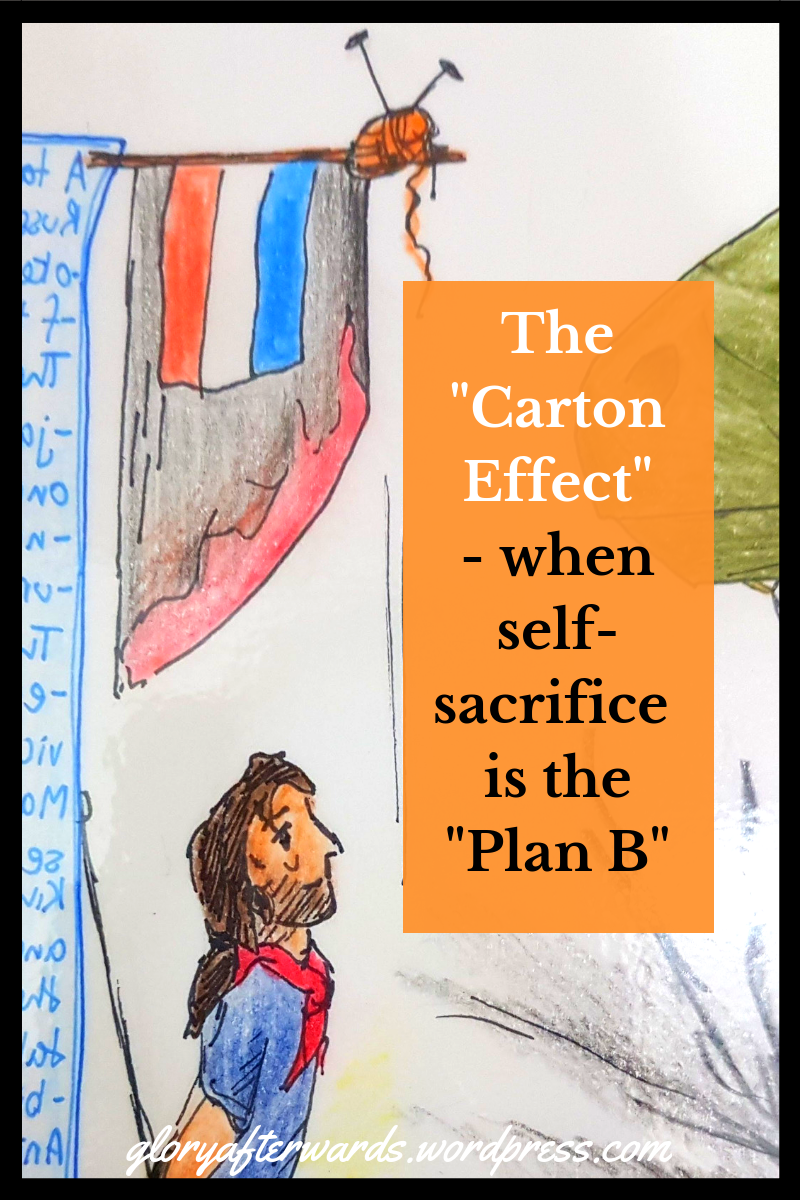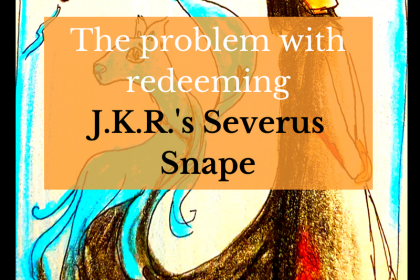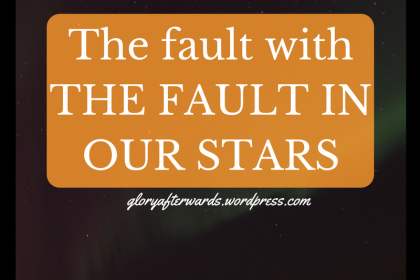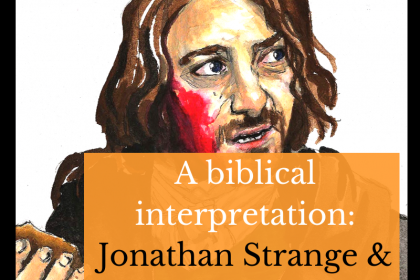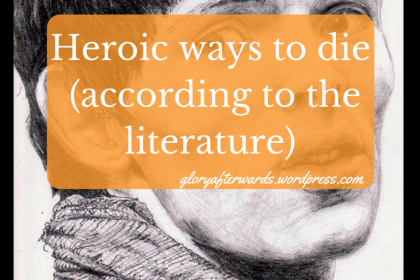We all know the fictional ‘trope’ of “self-sacrifice.” It’s what Aslan, Harry Potter, Timothy and Jesus have in common.
I’ve recently been musing on a specific type of sacrifice ‘trope’ (for want of a better word) which seems to crop up again and again in literature. I’m calling it….
“The Carton Effect”
Sydney Carton, from Dickens’ A Tale of Two Cities, is often expounded as a heroic example of self-sacrifice. Let’s analyse his actions.
Carton WANTS Lucie Manette. He loves her more than anything.
Carton is PREVENTED from having Lucie because he’s wasted his life and opportunities and believes himself unfit for her.
AS AN ALTERNATIVE Carton dies so that Lucie’s husband may live.
It’s not a triumphant sacrifice
I want to highlight the “prevented” idea. Carton never receives what he wants. Even in dying he doesn’t receive it. Instead, his death ensures a “second best” or “plan B” – Lucie receives happiness, just not with him.
This sequence of events is very poignant and also very different to the self-sacrifice practised by Aslan, Timothy, Harry Potter, Jesus etc. Let’s look at Aslan:
Aslan WANTS to save the children of Narnia.
Aslan KNOWS the only way he can save them is through his death.
AS A RESULT Aslan dies so that they can be saved.
Unlike Carton, Aslan receives what he desires. He sacrifices much to get it, it’s true, but it’s also clear that this is no “plan B”. His death is less poignant and more triumphant.
“The Carton Effect” in literature
These two subtypes of the self-sacrifice trope are fascinating. I’m sure there are many more, but I’d like to give some more examples of The Carton Effect to prove that it’s truly a distinct sub-type. These are some texts I’ve read/watched recently:
Example 1: The Hunger Games
Let’s take Haymitch from The Hunger Games. It’s clear he WANTS to escape his demons. His un-chosen and undesired status as a past-victor PREVENTS this. AS AN ALTERNATIVE he risks his life for Katniss so she can have the peace he never received.
Haymitch is Carton.
Katniss (in her sacrifice for her sister) is Aslan.
Interestingly, once Katniss loses her sister, she becomes “a Carton”. She’s lost her “first desire” to save her sister, and as an alternative sacrifices herself by killing Coin, so that at the very least, other people get to keep their sisters.
Example 2: Jonathan Strange & Mr. Norrell (BBC)
Let’s look at John Childermass from Jonathan Strange and Mr. Norrell. It becomes clear that he WANTS to bring back the Raven King’s. His status as a servant and the son of a prostitute PREVENTS this. AS AN ALTERNATIVE he takes a bullet for his master so that Mr. Norrell can bring magic back, and thus (unwittingly) open a door for the Raven King.
Example 3: Harry Potter
Now I haven’t read Harry Potter recently, but as Rowling admitted she based Severus Snape off Sydney Carton, it would be remiss of me to omit him from this list.
Severus Snape WANTS Lily Evans. He adores her. He is PREVENTED by his Death-Eater associations, possibly a result of his upbringing. AS AN ALTERNATIVE he dies to save Lily’s son Harry, whom he greatly dislikes.
Enough examples.
What exactly is the Carton effect?
- It is one of pathos and tragedy rather than brawny triumph
- It is one of redemption of self rather than wide-scale salvation
- It is a more complex sacrifice, and perhaps a more relatable one. We are not all Aslans.
- It is a reminder that sometimes Plan Bs can be heroic too
- It usually involves “peripheral” characters, and so often echoes thematic concerns rather than compounding them. As a result it may appear as an ‘incomplete’ or ‘unfinished’ segment within the wider narrative arc.
- There is often an inherent personal attribute which prevents the characters achieving their desired Plan A.
Conclusion
So then, The Carton Effect is a sub-trope of ‘self sacrifice’. It is marked by a character’s realisation that while their sacrifice will not result in their most-desired outcome, it is still (to quote Sydney Carton himself): “a far, far better thing [they] do, than [they] have ever done.”
